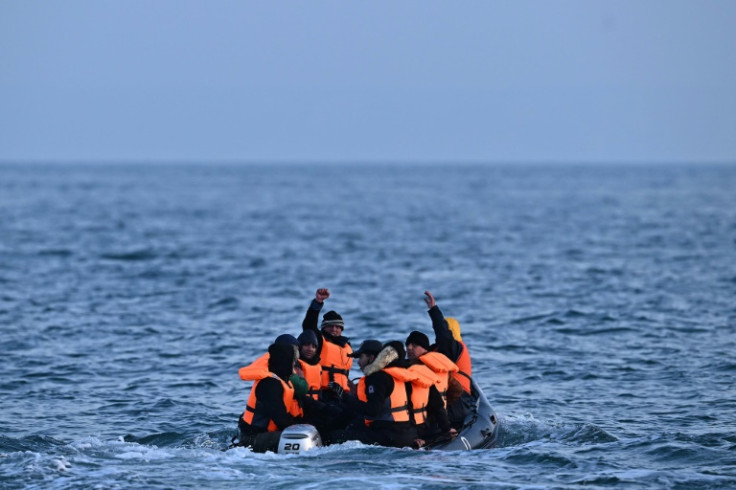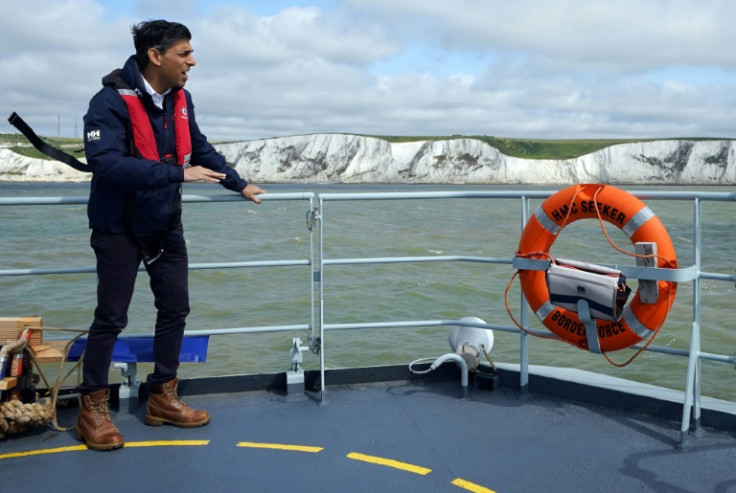Migrant Channel Crossings Top 100,000 Since 2018: UK Data

More than 100,000 migrants have crossed the Channel on small boats from France to southeast England since Britain began publicly recording the arrivals in 2018, official figures revealed on Friday.
Some 755 migrants were detected Thursday on 14 small boats headed for England's southern coast, the UK interior ministry statistics showed, the highest tally on a single day this year.
Those boats bring the number of arrivals so far this year to nearly 16,000, and takes the total since counting the cross-Channel journeys started in 2018 to 100,715.
The final tally for 2023 appears set to be less than the previous year for the first time since the route began to grow in popularity at the end of the last decade.
Just 299 migrants made the journey in 2018, but during 2020 it had climbed to 8,466 while last year saw a record 45,755 arrivals.
The lower numbers in 2023 could be due to months of particularly poor weather, which makes the journeys in small inflatable vessels almost impossible.
French authorities have also stepped up patrols and other deterrent measures after London agreed in March to send Paris hundreds of millions of euros annually towards the effort.
The route across one of the world's busiest shipping lanes has repeatedly proved perilous, with several capsizings and scores of migrants drowning in the waters over the last decade.
The crossings have also become a highly contentious political issue and prompted the UK government to introduce legislation barring asylum claims by all arrivals via the Channel and other "illegal" routes.
The new law also mandates their transfer to third countries, such as Rwanda, but both policies are on-hold amid a court challenge over the legality of sending migrants to east Africa.
The plans have been condemned by migrant advocates, including the United Nations' refugee agency.
Prime Minister Rishi Sunak's government claims it has been forced to pursue the hardline deterrents as the surge in cross-Channel arrivals increasingly stretches resources.
Britain's asylum system backlog had ballooned to more than 130,000 by the end of March.
The cost of housing those applicants and other migrant arrivals has reached more than GBP6 million ($7.6 million) a day, according to officials, as they resort to using hotels and other temporary accommodation.
The government this week began housing migrants on board a barge docked off the southwest English coast, irking locals and rights campaigners.
Sunak, who made "stopping the boats" one of his five key aims in 2023 ahead of an expected general election next year, has insisted his strategy is prevailing, despite the arrivals.
The issue is set to remain prominent, with migration a perennial top concern of voters, particularly those who typically opt for his centre-right Conservatives.


© Copyright AFP 2025. All rights reserved.





















